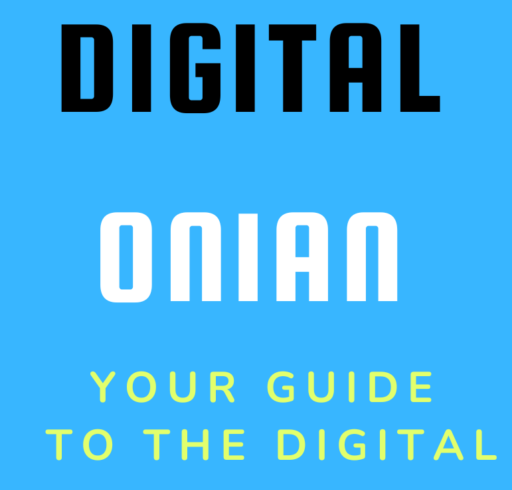The Potential Death of the World Wide Web as We Know It
I came across a nostalgic story about a long-standing personal website started by an IT professional in 2008 that made me realize that the death of the world wide web as we know it, might be just around the corner.
It began as a vanity project, a common trend when many maintained personal websites. Over the years, as web monetization progressed, and privacy issues emerged, the site owner began tightening security and limit access. Despite considering shutting it down, the owner kept the site running due to the usefulness of several web applications they had developed, which worked seamlessly across various platforms like Linux, Mac, and smartphones.
The site became a private sanctuary, hosting only a few publicly accessible pages, including a weather station and some shared codes. Regular monitoring of server logs revealed that search engines and hackers overwhelmingly dominated the site’s traffic rather than genuine human visitors. The site owner learned to track and classify these intrusions, using geolocation techniques to identify sources from China and Russia to the UK and Washington, D.C.
When the owner relaxed constraints on major search engines, he discovered something shocking: The search engines sniffed around but quickly moved on without indexing the site. The reason? The site lacked monetized content. Search engines, particularly Google, showed no interest in individual, non-monetized websites anymore. Instead, they prioritize sites that generate ad revenue, and drive clicks to their advertisers.
Google’s SGE Evolution
This observation made me consider the broader implications of Google’s search engine evolution, specifically the search generative experience (SGE). Google’s SGE is a significant departure from traditional search models. It integrates AI to generate comprehensive answers and summaries, reducing the need for users to click through multiple search results. While this might enhance the user experience by providing quick answers, it profoundly impacts how websites are discovered and valued.
Impact of SGE on Web Content
- Decreased Visibility for Non-Monetized Sites: As Google’s algorithms prioritize content that keeps users within their ecosystem (like Google’s own generated answers), non-monetized, independent websites struggle to gain visibility.
- Increased Emphasis on Monetization: Websites incorporating ads and other monetized content are more likely to be indexed and ranked higher, contributing to Google’s revenue model.
- Content Homogenization: As AI-generated summaries become more prevalent, there is a risk of homogenization, as unique, niche perspectives are drowned out by broadly appealing, ad-driven content.
The Erosion of Free Information
Reflecting on these trends, it’s clear that once a bastion of free information and personal expression, the web is becoming a pay-to-play environment. Well-established, content-rich websites overshadow monetized sites, pushing hobbyists and small businesses to platforms like Substack or Medium. This shift is driven by search engines evolving algorithms, which favor SEO-optimized, ad-heavy sites over genuine content.
The Bias Toward Monetization
Search engines are increasingly biased towards professional SEO sites, sidelining original content creators. The rise of technical requirements for SEO compliance further marginalizes those focusing on content rather than optimization. As a result, many authors and hobbyists are migrating to blogging platforms or limiting their online presence to minimalistic, one-page websites.
A Pay-to-Play Web Environment
The WWW is becoming more exclusive and restrictive. The monetization trend creates a divide between those who can afford to pay for visibility and those who cannot. This evolution suggests a future where valuable information may be accessible only behind paywalls, reinforcing a digital divide.
The Challenge of Finding Pure Knowledge in wake of the death of the world wide web
It has become increasingly difficult to find non-monetized content. Advertising dominates search results, making it challenging to access pure knowledge. The reliance on advertising to fund the web turns it into a shallow pool of information, where deeper, more valuable content is buried or overlooked.
The Threat to Autonomy and Freedom
Moreover, web browsers’ autonomy and freedom over apps are under threat. Companies exert increasing control over users through algorithms, dictating the user experience based on profit motives. This sentiment underscores the growing frustration with the corporatization of the web, where profit motives increasingly dictate user experience.
Google as a Gatekeeper
Google is not the web itself but a gatekeeper becoming more like a walled garden. Users are starting to seek alternative methods of finding information, reclaiming skills once outsourced to search engines. This shift from Google-centric search strategies reflects a desire to escape the confines of commercialized search results.
The Human Element and Cultural Impact
From a non-technical perspective, the focus on monetization detracts from the web’s original purpose: to facilitate the open, free exchange of information. The increasing prevalence of ads and data-driven strategies raises questions about the web’s future and its societal role.
Conclusion: Navigating a Changing Landscape
The story of the personal website and my reflections on it illustrate a troubling trend. The World Wide Web, once a frontier of free expression and knowledge sharing, is being transformed into a commercialized portal. Non-monetized sites are being sidelined, with search engines prioritizing ad-driven content. This shift is not just a technical or economic issue but a cultural one, affecting how we access and value information. As we navigate this evolving landscape, it’s crucial to remember the web’s foundational principles and strive to maintain its openness and accessibility.

